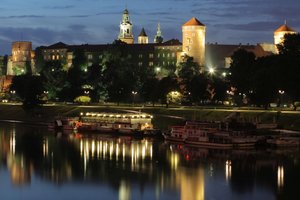Poland in UNESCO’s Intangible Cultural Heritage Committee
During the 7th session of the signatory states of the UNESCO Convention for the Safeguarding of Intangible Cultural Heritage, Poland was elected to the UNESCO Intangible Cultural Heritage Committee.
 Competing for the two Committee positions in the Central Eastern European group were six countries: Poland, Azerbaijan, Belarus, Georgia, Romania and Slovakia. Poland gained the support of 52 voters. Azerbaijan was also elected to the Committee.
Competing for the two Committee positions in the Central Eastern European group were six countries: Poland, Azerbaijan, Belarus, Georgia, Romania and Slovakia. Poland gained the support of 52 voters. Azerbaijan was also elected to the Committee.
Intangible heritage is passed down from generation to generation by the community, giving it a sense of identity and continuity. It also contributes to greater respect for cultural diversity and is a source of inspiration for human creativity. According to the UNESCO Convention, it includes:
- traditions and oral traditions, including language as a carrier of intangible cultural heritage
- performing arts
- customs, rituals and holiday celebrations
- knowledge and practices regarding nature and the universe
- skills related to traditional crafts
The national list is a documentation of Poland's heritage, which implements the provisions of the UNESCO Convention of 2003. Poland ratified the Convention in 2011. Since then, the national list has included Krakow's nativity scenes, Polish national dances, the Esperanto language, the Lajkonik procession, the ability to produce and play on a Polish version of the bagpipes, celebrations in honour of Saint Roch with the blessing of animals, the Warmian dialect as a carrier of oral traditions, beekeeping, Bug river traditions and the Procession of Corpus Christi in Łowicz and many others.
Poland.pl
07.06.2018







